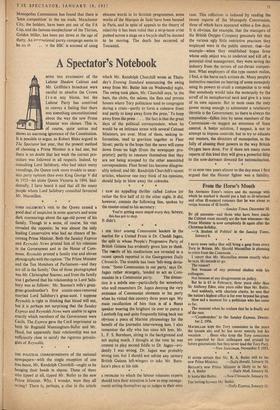A PROBLEM TO which the labour relations experts should turn
their attention is how to stop manage- ments setting themselves up as judges in their own case. This reflection is induced by reading the recent reports of the Monopoly Commission, three of which have appeared within a few days. It is obvious, for example, that the managers of the British Oxygen Company genuinely felt that the various ugly little restrictive practices they employed were in the public interest; that—for example—when they established bogus firms whose only object was to undercut and kill off a potential rival management, they were saving the industry from the terrors of cut-throat competi- tion. What employers of this type cannot realise, I find, is the harm such actions do. Many people's instinctive reaction on hearing of some monopoly using its powers to crush a competitor is to wish that somebody would take the monopoly by the scruff of its metaphorical neck and give it a taste of its own squeeze. But in most cases the only power strong enough to administer a retaliatory throttle is the Government; so there is always the temptation—fallen into by some members of the Commission—to suggest an extension of State control. A better solution, I suspect, is not to attempt to impose controls; but to try to educate our masters, the directors of monopolies, in the folly of abusing their powers in the way British Oxygen have done. For if there are many more reports of this kind they will give a powerful fillip to the now-dormant demand for nationalisation.


































 Previous page
Previous page